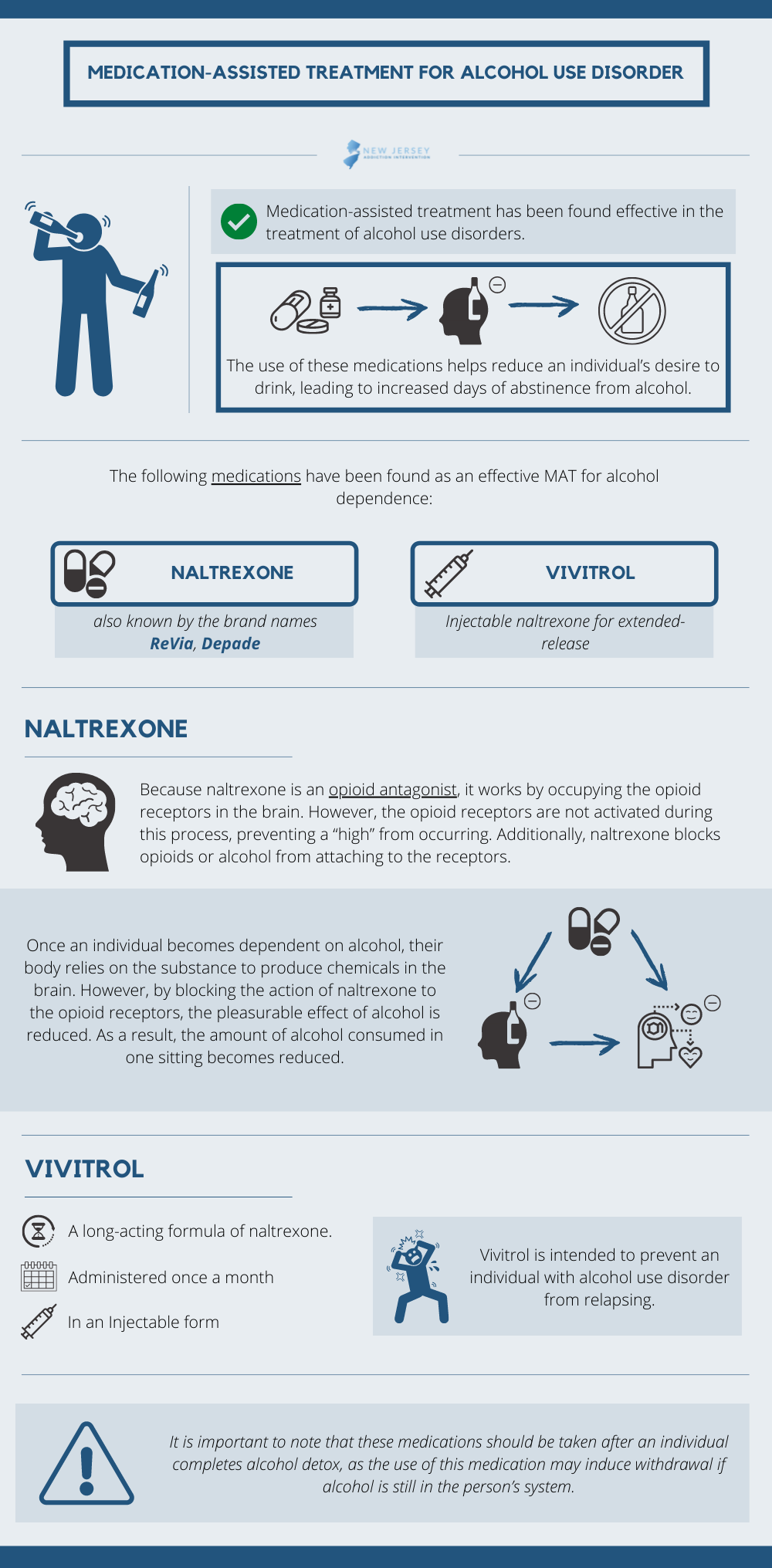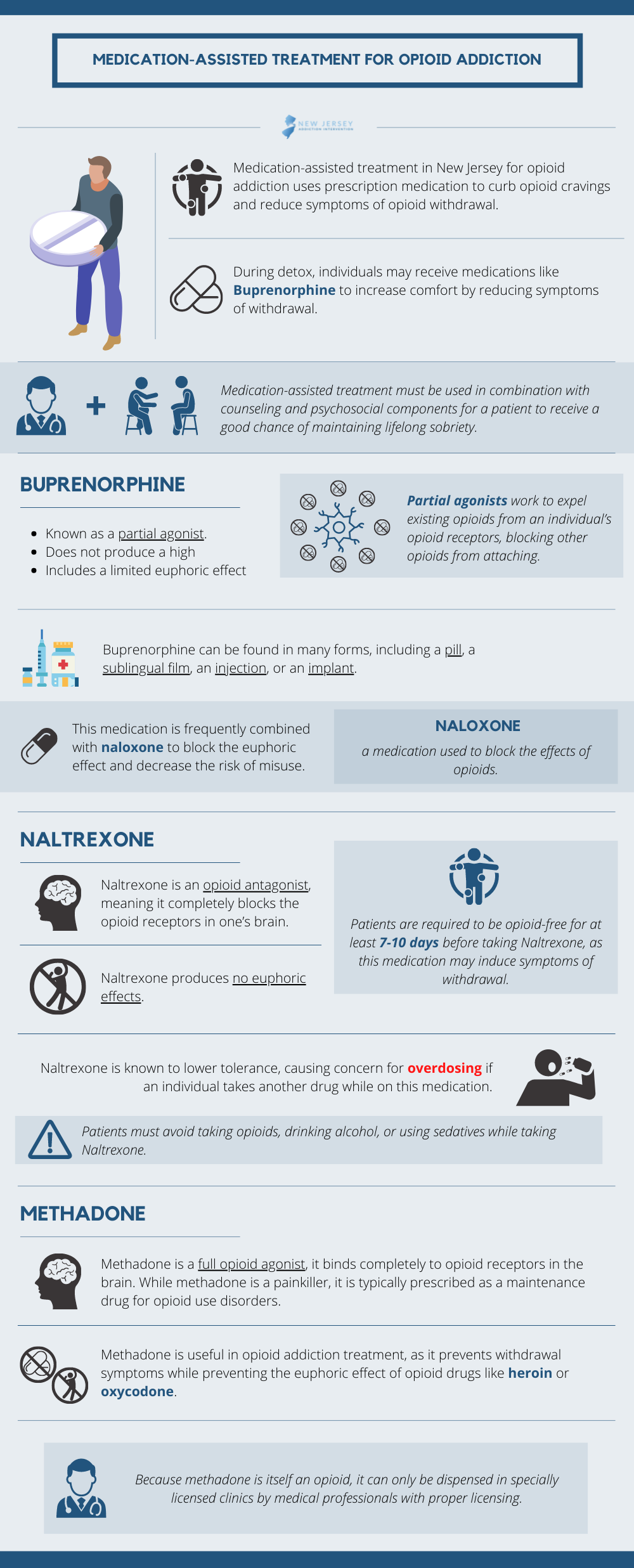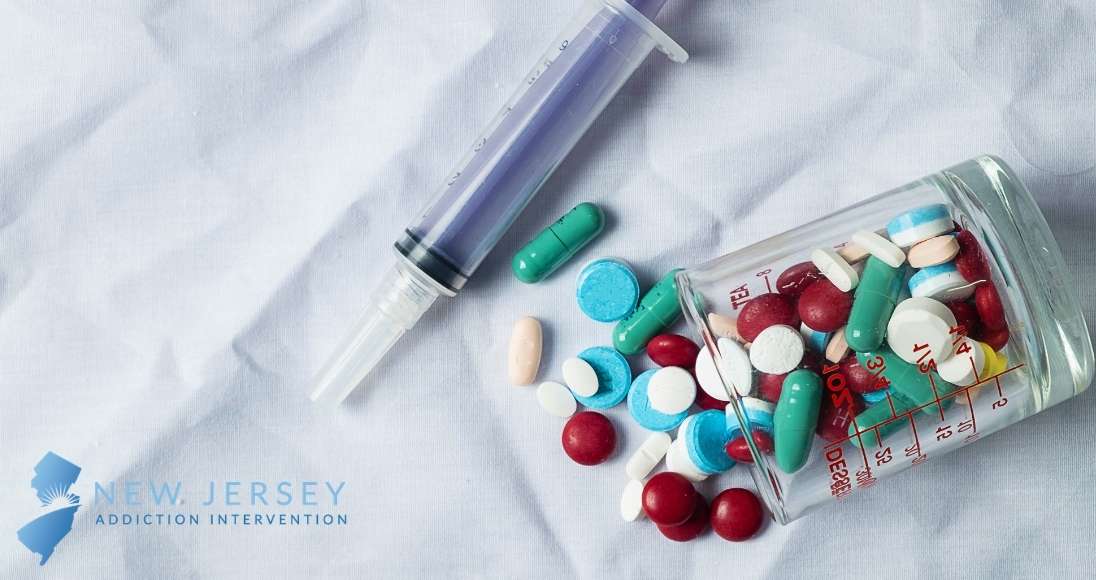If you or someone you love has gone through the trials and tribulations of addiction, you know how important substance abuse treatment is. Fortunately, professionals have more tools than ever regarding the treatment of opioid and alcohol use disorders. Medication-assisted treatment has become the most popular and effective manner of treating opioid addiction and providing patients with the skills they need to maintain long-term recovery.
There are three vital components of medication-assisted treatment (MAT), including counseling, medication, and support from family and friends. The combination of these components allows each of the three parts to work together, creating a strong foundation of recovery. Utilizing FDA-approved medications and evidence-based therapies, medication-assisted treatment is a ground-breaking form of addiction treatment for opioid-dependent patients.
Psychosocial Components of MAT
Medication-assisted treatment includes more than the use of medication. In fact, psychosocial addiction treatment is one of the most important aspects of medication-assisted treatment in New Jersey. Before the intake process has begun, a team of medical professionals will assess the patient’s specific needs.
Examples of needs that will be assessed and, treated if necessary, include:
- Behavioral patterns
- History of substance abuse
- Additional mental health conditions
- The presence of support networks, such as family and friends
Psychosocial treatment often includes:
- Individual and group therapy
- Family counseling
- Inpatient treatment
- Intensive outpatient treatment
- Aftercare programs
- Relapse prevention
- 12-step programs
- Peer support
While some patients may not require each resource, every patient’s treatment plan should be specifically designed to fit the needs of the patient. Additionally, they should be monitored to assess patient progress, making alterations, and updates to the treatment plan when needed.
MAT for Alcohol Use Disorder

Medication-assisted treatment has been found effective in the treatment of alcohol use disorders.[1] The use of these medications helps reduce an individual’s desire to drink, leading to increased days of abstinence from alcohol.
The following medications have been found as an effective MAT for alcohol dependence:
- Naltrexone (also known by the brand names ReVia, Depade)
- Injectable naltrexone for extended-release (known by the brand name Vivitrol)
Naltrexone
Because naltrexone is an opioid antagonist, it works by occupying the opioid receptors in the brain. However, the opioid receptors are not activated during this process, preventing a “high” from occurring. Additionally, naltrexone blocks opioids or alcohol from attaching to the receptors.
Opioid receptors are involved with the development of alcohol dependence. When an individual drinks alcohol, their opioid receptors are activated. Once an individual becomes dependent on alcohol, their body relies on the substance to produce chemicals in the brain. However, by blocking the action of naltrexone to the opioid receptors, the pleasurable effect of alcohol is reduced. As a result, the amount of alcohol consumed in one sitting becomes reduced.
Vivitrol
Vivitrol is a long-acting formula of naltrexone. This medication is administered once a month in an injectable form. Vivitrol is intended to prevent an individual with alcohol use disorder from relapsing. It is important to note that these medications should be taken after an individual completes alcohol detox, as the use of this medication may induce withdrawal if alcohol is still in the person’s system.
MAT for Opioid Addiction

Medication-assisted treatment in New Jersey for opioid addiction uses prescription medication to curb opioid cravings and reduce symptoms of opioid withdrawal.[2] During detox, individuals may receive medications like buprenorphine to increase comfort by reducing symptoms of withdrawal. However, MAT must be used in combination with counseling and psychosocial components for a patient to receive a good chance of maintaining lifelong sobriety.
Buprenorphine
Buprenorphine is known as a partial agonist. Partial agonists work to expel existing opioids from an individual’s opioid receptors, blocking other opioids from attaching. While this medication includes a limited euphoric effect, it does not provide the same effect as other opioids. In other words, buprenorphine does not produce a high. The only people who are known to develop buprenorphine dependency did not already suffer from another opioid use disorder.
Buprenorphine can be found in many forms, including a pill, a sublingual film, an injection, or an implant. This medication is frequently combined with naloxone to block the euphoric effect and decrease the risk of misuse.
FDA-approved brands of buprenorphine include
- Bunavail film (buprenorphine and naloxone)
- Cassipa film (buprenorphine and naloxone)
- Probuphine implant
- Sublocade injection (extended-release injection of buprenorphine)
- Suboxone film (buprenorphine and naloxone)
- Subutex film or tablet (buprenorphine and naloxone)
- Zubsolv tablet (buprenorphine and naloxone)
Naltrexone
Naltrexone is an opioid antagonist, meaning it completely blocks the opioid receptors in one’s brain. In other words, naltrexone produces no euphoric effect. Because of this, it’s mainly used as a relapse-prevention drug for individuals who have completed detox and no longer suffer from withdrawal symptoms. Naltrexone cannot prevent withdrawal symptoms, making this not ideal for individuals in detox from opioid dependency. Patients are required to be opioid-free for at least 7-10 days before taking Naltrexone, as this medication may induce symptoms of withdrawal.
If a patient relapses while taking Naltrexone, they will not receive the high they are seeking. However, Naltrexone is known to lower tolerance, causing concern for overdosing if an individual takes another drug while on this medication. Patients must avoid taking opioids, drinking alcohol, or using sedatives while taking Naltrexone.
Methadone
Because methadone is a full opioid agonist, it binds completely to opioid receptors in the brain. Methadone is useful in opioid addiction treatment, as it prevents withdrawal symptoms while preventing the euphoric effect of opioid drugs like heroin or oxycodone. While methadone is a painkiller, it is typically prescribed as a maintenance drug for opioid use disorders.
Because methadone is itself an opioid, it can only be dispensed in specially licensed clinics by medical professionals with proper licensing.
While the length of treatment varies from patient-to-patient, individuals typically undergo methadone treatment for at least one year. Once a doctor and patient feel it’s time to go forward without methadone, they will be tapered off the medication under medical supervision to avoid withdrawal. However, methadone treatment may continue indefinitely, depending on the individual’s needs.
Attending Medication-Assisted Treatment in New Jersey
If you or someone you love suffers from opioid or alcohol addiction, medication-assisted treatment may be right for you. The use of FDA-approved medications allows patients to manage their symptoms of withdrawal and cravings while focusing on the psychosocial components of addiction treatment.
Contact New Jersey Interventions today for more information on medication-assisted treatment or to locate a rehab center in New Jersey.
References:
Medically Reviewed: December 18, 2020

All of the information on this page has been reviewed and verified by a certified addiction professional.

